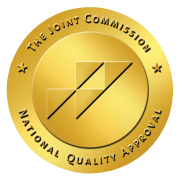Can OCD Be Cured?
Obsessive-Compulsive Disorder (OCD) is quite often very misunderstood. If you or someone you love is dealing with OCD, you’ve likely wondered if it can ever really go away. It’s a question that tugs at the heartstrings, especially on the tough days: Can OCD be cured?
Understanding OCD: The Basics
OCD isn’t just about liking your books arranged by color or being a stickler for clean counters. It’s more like your brain gets stuck on a particular thought or urge and won’t let go, leading to behaviors that can take over your life.
Imagine feeling compelled to check that the door is locked 20 times before you can sleep or wash your hands until they’re raw. It’s exhausting and consuming.
The Hope and the Reality of Treatment
So, can OCD be cured? Well, “cure” might be too strong a word given our current understanding and technology. OCD is chronic, which means it can be managed and controlled, but it might always be a part of someone’s life to some extent. But here’s the hopeful part: treatment can really help, and life can become normalized.
The Important Work of Therapy for OCD
Therapy, especially cognitive-behavioral therapy (CBT) and its counterpart, Exposure and Response Prevention (ERP), is kind of astounding. This type of therapy gently helps people face their fears without giving in to their compulsions.
Imagine being afraid of germs but learning, little by little, to handle an object that scares you without rushing to wash your hands. Over time, your brain starts to learn a new narrative: maybe it’s not as dangerous as I thought.
Can OCD Be Cured With Medication?
Medications, especially selective serotonin reuptake inhibitors (SSRIs), can play a crucial role in managing the symptoms. SSRIs, which increase the levels of serotonin in the brain—a neurotransmitter associated with mood regulation—have been found to help reduce the intensity of OCD symptoms in many patients.
This reduction can make symptoms more manageable and allow folks to benefit more effectively from psychotherapy, such as Cognitive Behavioral Therapy (CBT).
These medications are not effective for everyone and are not considered a cure, but they can significantly “turn down” the severity of the symptoms. This decrease in symptom intensity can provide patients with the necessary relief to engage in therapy and implement strategies that address the underlying thought patterns and behaviors associated with OCD.
Why There’s No Simple “Cure”
The brain is incredibly complex, and despite all our leaps in science, we’re still unraveling how it works. When we ask, “Can OCD be cured,” we have to take into account the various factors including genetics, brain biology, and environment.
Because of this complexity, what works for one person might not work for another. That’s why the road to managing OCD is often paved with personalized treatment plans.
Common Questions and Misconceptions About OCD
Q1: Is OCD just about being overly neat and organized?
A1: No, OCD is much more than a desire for neatness. While some people with OCD might have compulsions related to orderliness, the disorder encompasses a wide range of obsessions and compulsions.
It involves unwanted, distressing thoughts and repetitive behaviors that the person feels driven to perform, which can significantly disrupt daily functioning and quality of life.
Q2: Can people with OCD just stop their behaviors if they really want to?
A2: Stopping the compulsions associated with OCD isn’t simply a matter of willpower. The behaviors are driven by intense, uncontrollable fears and anxieties. Treatment, particularly cognitive-behavioral therapy (CBT) and Exposure and Response Prevention (ERP), is often necessary to help manage and reduce these compulsions.
These therapies work by gradually exposing individuals to their fears and teaching them healthier ways to cope with anxiety.
Q3: Does OCD go away with medication?
A3: Medications, especially selective serotonin reuptake inhibitors (SSRIs), can be very effective in managing the symptoms of OCD. However, medication typically doesn’t cure OCD but helps to reduce the intensity of the symptoms.
Many individuals may experience significant relief, and when combined with therapy, medication can provide a strong foundation for managing the disorder.
Q4: Is OCD a rare condition?
A4: OCD is not as rare as many might think. It affects men and women equally and can start at any time from preschool age to adulthood. The disorder is quite common, affecting approximately 2-3% of the population.
Understanding that OCD is a common mental health condition can help reduce stigma and encourage individuals to seek the help they need.
Q5: Can children have OCD, and how can they be treated?
A5: Yes, children can have OCD. In fact, many adults who are diagnosed with OCD can trace their symptoms back to childhood. Treatment for children is similar to that for adults, involving therapy and sometimes medication. It’s crucial for treatment to be age-appropriate and supportive, often involving the family to help manage the disorder effectively.
Embracing the Journey
While we may not be able to say OCD can be “cured” as we might hope or imagine, the beauty of this journey is that there’s tremendous room for improvement. Many find that with the right combination of treatments, their OCD becomes a whisper instead of a shout, something manageable that doesn’t steal the joy from their days.
Getting Help Managing OCD
If OCD’s challenges resonate with you or someone close to you, Lido Wellness Center is here to help. We understand the intricacies of OCD and offer personalized treatment plans designed to manage and alleviate the symptoms. Don’t let OCD define your life. Reach out to us today and take the first step towards a better tomorrow. Call Lido Wellness Center today: 949-541-8466.




